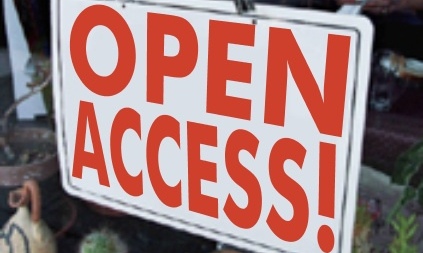UN best practices for open access

Open access (OA) to research is high on the agenda for both
How to promote OA
Now, Dr. Alma Swan published peer-reviewed
Two main routes to OA are put forward: the ‘gold route’ viadigital OA journals and the ‘green route’ through which material isstored in repositories. Europe has been particularly successful inpromoting the latter as 47% of all online repositories are foundthere. Asia (19%) and North America (20%) are less active in thisrespect.
Different disciplines differ particularly with respect to theirreadiness to implement OA. Earth Sciences (32,9%), Mathematics(25,6%), Physics and Astronomy and Social Sciences (both 23,5%)lead the way.
Swan describes the
- improving the speed, efficiency and efficacy of research
- being an enabling factor in interdisciplinary research
- enabling computation upon the research literature
- increasing the visibility, usage and impact of research
- allowing the professional, practitioner and businesscommunities, and the interested public, to benefit fromresearch
She then suggests the following
- Policy type: policies may request andencourage provision of Open Access, or they may require it.Evidence shows that only the latter, mandatory, type accumulateshigh levels of material. Evidence also shows that researchers arehappy to be mandated on this issue
- Open Access routes covered: policiescan require ‘green’ Open Access by self-archiving but to preserveauthors’ freedom to publish where they choose policies should onlyencourage ‘gold’ Open Access through publication in Open Accessjournals
- Deposit locus: deposit may berequired either in institutional or central repositories.Institutional policies naturally specify the former: funderpolicies may also do this, or may in some cases specify aparticular central repository
- Content types covered: all policiescover journal articles: policies should also encourage Open Accessfor books: funder polices are increasingly covering research dataoutputs
- Embargoes: Policies should specifythe maximum embargo length permitted and in science this should be6 months at most: policies should require deposit at the time ofpublication with the full-text of the item remaining in therepository, but closed, until the end of the embargo period
- Permissions: Open Access depends onthe permission of the copyright holder, making it vulnerable topublisher interests. To ensure that Open Access can be achievedwithout problem, sufficient rights to enable that should beretained by the author or employer and publishers assigned aLicence To Publish. Where copyright is handed to the publisher,Open Access will always depend upon publisher permission andpolicies must acknowledge this by accommodating a ‘loophole’ forpublishers to exploit
- Compliance with policies: compliancelevels vary according to the strength of the policy and the ongoingsupport that a policy is given: compliance can be improved byeffective advocacy and, where necessary, sanctions
- Advocacy to support a policy: thereare proven advocacy practices in support of an Open Access policy:policymakers should ensure these are known, understood, andappropriate ones implemented
- Sanctions to support a policy: bothinstitutions and funders have sanctions that can be used in supportof an Open Access policy: policymakers should ensure that these areidentified, understood and appropriate ones implemented where otherefforts fail to produce the desired outcome
- Waivers: where a policy is mandatoryauthors may not always be able to comply. A waiver clause isnecessary in such policies to accommodate this
- ‘Gold’ Open Access: where a funder orinstitution has a specific commitment with respect to paying ‘gold’article-processing fees, this should be stated in the policy
Meest Gelezen
Vrouwen houden universiteit draaiende, maar krijgen daarvoor geen waardering
Wederom intimidatie van journalisten door universiteit, nu in Delft
‘Burgerschapsonderwijs moet ook verplicht worden in hbo en wo’
Raad van State: laat taaltoets nog niet gelden voor hbo-opleidingen
Hbo-docent wil wel rolmodel zijn, maar niet eigen moreel kompas opdringen

